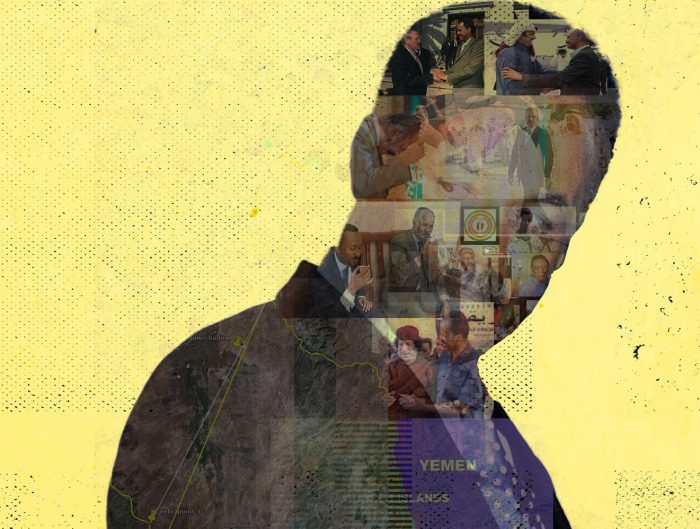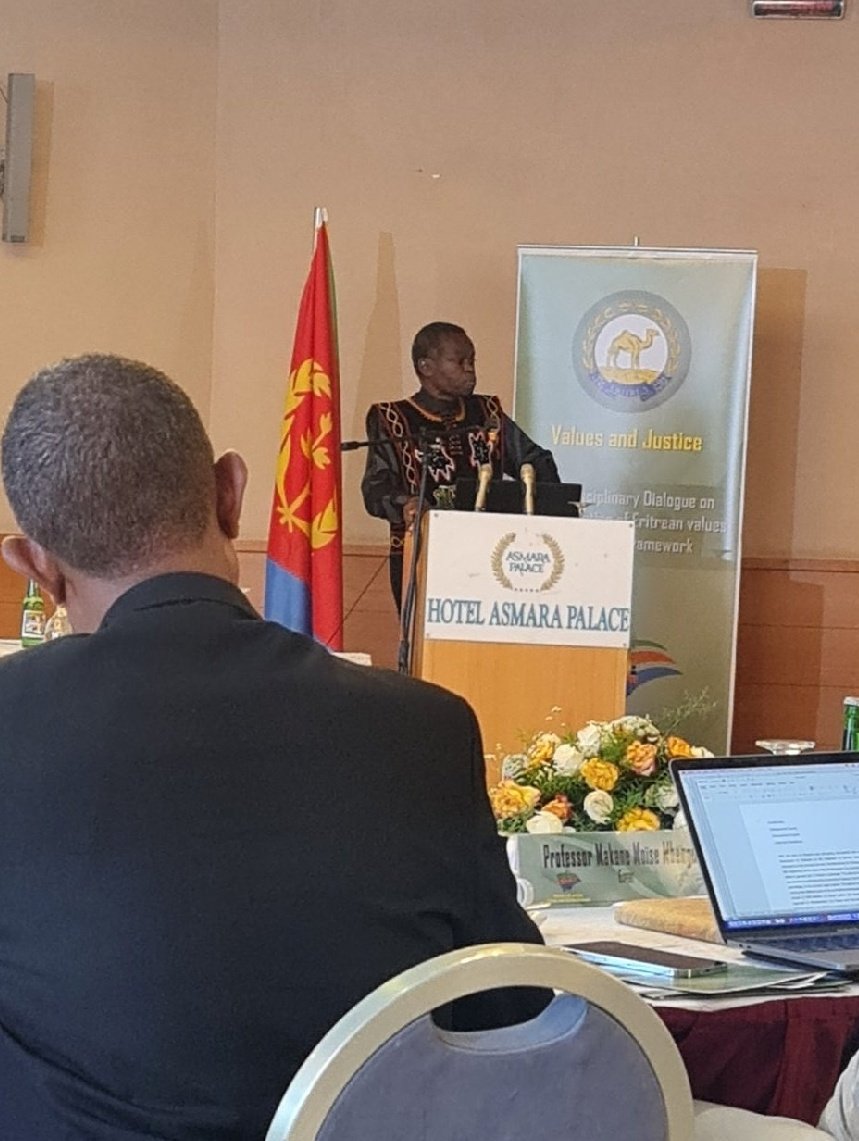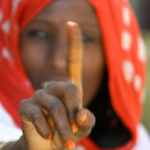The Eritrean government (which is to say: President Isaias Afwerki) is terrible at many things but it is great at weaving a narrative. Thus, to this day, many people, including many who consider themselves well-read, would say that the reason the UN imposed resolution 1907 on Eritrea in 2009 is because (a) it was fed false information about Eritrean support for Somalia’s Alshabab; (b) this information was later on found to be false; (c) but, at the insistence of Ethiopia, the US persisted in pushing sanctions because (d) it was aiming for regime change in Eritrea. Similarly, the reason the sanctions are lifted now is because the last hurdle, Ethiopian and US positions, had shifted due to (a) new government in Ethiopia and (b) new National Security Advisor in the USA and so it was no longer sustainable. Therefore, since the UN sanctions were unjust and unlawfully applied, Eritrea is owed some sort of restitution.
This narrative leaves out two major causes for the imposition of sanctions as they relate to Somalia and Djibouti. On (1) Somalia it was (a) Eritrea’s rejection of the internationally-recognized Djibouti Agreement to bring about stability in Somalia and (b) its violation of resolution 1844 (2008) which demanded of all member states to stop providing ANY support to Somali insurgents; and (c) violation of resolution 1853 (2008) in providing political, financial and logistical support to armed Somali groups. On (2) Djibouti, it was (a) Eritrea’s refusal to recognize its conflict with Djibouti, (b) its refusal to comply with Security Council resolution 1862 (2009) and redeploy its troops to status-quo-ante, and (c) its refusal to account for Djibouti prisoners of war.
1. SOMALIA. Eritrea’s Rejection of the Djibouti Agreement: The Djibouti Agreement of June 9, 2008, was the impetus for a series of developments that challenged Al-Shabab and gave Somalia the current relatively-democratic premiership of Mohammed Formajio. The Government didn’t just reject it; it did it with its sanctimonious know-it-all attitude:
As my Government has underlined on many occasions, the highly complex and grave conflict in Somalia will not be resolved by arbitrary and ill-advised formulas that have no basis in international law and that do not reflect the wishes and sovereign political choices of the Somali people. “Transitional Governments” that are periodically hatched in non-inclusive incubators outside Somalia have never survived the test of time in the past years in spite of the huge military and financial support extended to them by their external sponsors. The illicit provision of arms associated with, and justified under, these acts have further added fuel to the simmering conflicts. (Permanent Representative of Eritrea to the United Nations addressed to the President of the Security Council, 19 May 2009)
The sanctions on Eritrea were partly caused by this, as Resolution 1907 notes when it expressed “its grave concern at Eritrea’s rejection of the Djibouti Agreement, as noted in the letter of 19 May 2009.”
As any honest Eritrean will note, between 2006 and shortly after the sanctions, Eritrean state media, particularly Eri-TV, was dominated by news about Eritrean support for forces that were opposed to those who were reconciled with the Djibouti Agreement (TFG and ARS.)
The state website, shabait.com, had a steady diet of that as well. (See here, for example)
Not just state media, the Eritrean president took special delight in mocking the Djibouti Agreement calling it “a U.S.-inspired attempt to undermine a legitimate resistance movement.” In the same interview (May 13, 2008, i.e., two months after Al-Shabab was designated as terrorist organization by the US and UK), Isaias Afwerki all of a sudden discovered the merits of religion when he said that “There’s nothing wrong with adopting Islam as a solution, or Christianity for that matter.” And then, there was this:
2. DJIBOUTI: The authoritative IBRU described the sequence of events between Eritrea and Djibouti as follows: “In April 2008 Eritrean forces began entrenching positions along the unmarked boundary which Djibouti claimed were encroaching on its territory. Tensions escalated as Djibouti moved its troops closer to the Eritrean positions and skirmishes broke out in June 2008 killing at least 35. Several Western and Arab states along with the UN Security Council and the Arab League called on Eritrea to return its forces to their previous positions. Although there have been no reports of significant fighting since skirmishes ended in 2008, soldiers from both sides have remained in close proximity as Eritrea refused to abandon its forward positions until this recent move.” – IBRU, Center for Border Research, 10 June 2010.
Here’s what needs to be remembered. Between April 2008, when Djibouti first brought the matter to the attention of the international community, and June 2010, when Eritrea agreed to Qatari mediation, the Government of Eritrea repeatedly dismissed the build-up to the conflict, and the conflict itself as “fabrication.” Thus, since it was a “fabrication”, it refused, for ELEVEN MONTHS, to re-deploy its troops when ordered to do so by a unanimous UN resolution which gave it a maximum 5 weeks to do so; it could not account for Djibouti POWs EVEN after some of them escaped and were interviewed by the Monitoring Group on Somalia and Eritrea (SEMG) (See here, page 70.) In fact, it wasn’t until March 2016 when it finally released Djibouti POWs and admitted that what it had dismissed as a “lie”–the report of the SEMG on the escaped prisoners was true.
In short, in 2016, the Government of Eritrea carried out what it was ordered to do in 2008: released Djibouti POWS.
This belligerence-masquerading-as-resilience has become the trademark of Eritrea’s ruling party. Here’s another example: the original sanctions of 2009 had very limited scope: arms embargo and targeted asset freeze and restriction of movement of government officials to be named later (they were never named.) Due to the government’s belligerence, they were strengthened in 2011 (13 in favor, 2 abstentions) with restrictions on the government’s ability to collect 2% Diaspora income tax and for companies to conduct due diligence on their investments to ensure that the proceeds do not end up with armed Somali groups. This is what people mean when they talk about “economic sanctions”: they didn’t hit until the second sanction. These are sanctions the government brought upon itself either due to its belligerence or, equally likely, its desire to create a police state.
With the lifting of the sanctions imposed in 2009 (arms, travel, asset freeze) and 2011 (financial due diligence), does one really expect a massive cash infusion to Eritrea considering that, just a few months ago, the World Bank ranked Eritrea near the bottom of the list (besting only Somalia) in it “Doing Business 2018” (see page 11) list?
A final point here: a few months ago, the United States Assistant Secretary for African Affairs testified in congress In response to a direct question by Ranking Member of the subcommittee, Karen Bass as to whether he thinks Eritrea will reform the National Service, he had this to say about what he called a “fortress state”: that it is “critically important for Eritrea to do domestically what it is doing internationally” and “….that goes, for example, to the sanctions regime. Eritrea cannot assume, by saying wonderful things and opening good relations with the neighbors, that it will automatically lead to sanctions relief. There has to be concrete actions taken. And we, of course, will remain engaged that say things that will not be popular. But they have to be said.”
Apparently, they are not going to be said. The United States, which has a president who considers himself such a great negotiator that he wrote the book on it (The Art of the Deal), essentially threw away its sole leverage to, at the very least, advocate for its own citizens and employees who have been made to disappear since 2001.
What lessons has the Eritrean government and its supporters learned after they exiled 15% of our population? The Eritrean government’s “strategy” appears to have been to wait for things completely outside its control: to (a) wait for change to come to Ethiopia; (b) wait for change to come to the United States; (c) wait for the politics of the Arab Gulf to realign. And that is exactly what happened. Nobody who supports the government of Eritrea is saying, “this is no way to run a country.” Instead, they are celebrating this as a spring forced by the spring-maker. Inspector Clouseau has solved a mystery and there is no lesson to learn from it, no reflection for what the government’s bumbling around for over a decade cost the Eritrean people. Would anyone be surprised if the president volunteered thousands of our youth to Somalia or Ethiopia for peacekeeping? And would any of his supporters say, “hell, no!” or would they, as usual, fall in line?
The bottom line for Eritreans is: will this result in tangible changes in their lives? With the threat of Ethiopia gone, will the term of the National Service be limited to 18 months? Not according to President Isaias Afwerki’s last interview: this is the time to “double” our efforts. Will this bring about improvement in human rights? In 2003, President Isaias Afwerki told journalist Robert Kaplan two things. One: “You need outside powers to keep order here. It sounds colonialist, but I am only being realistic.” Two: “He indicated that he would be more likely to satisfy U.S. demands on human rights in the context of a growing military partnership, but would not do so if merely hectored by the State Department.” Well, mission one is accomplished: there sure are a lot of “outside powers here”: Ethiopia, Saudi Arabia, and UAE. As for the second, well, in the Trump Administration, the US doesn’t appear to be too much concerned about human rights so there is nobody to hector him.
In any event, those of you who like to be “with the winners”, are welcome to leave the justice league, if you ever were with it. Those of you who were using Badme, sanctions as reasons to close your eyes and shut your mouth, now have no excuses. Well, you will probably come up with one. Those of us who call for unconditional improvement in human rights in Eritrea were not doing it because of this government in Ethiopia, that government in the US, or the other monarchy in Saudi Arabia or UAE. We do it because it is the right thing to do. No doubt, we have even fewer allies now. But we must persist because it is the right thing to do and thousands of our compatriots, in uncountable dungeons, muzzled, disappeared, killed, raped, sodomized, enslaved, exiled, are counting on us to do so! Notwithstanding how many times the Ethiopian PM looks at Isaias admiringly, no matter how many times Ethiopians cheer him, regardless how many times his fans hold his picture high, the fact remains that Isaias Afwerki and his flunkies stand credibly accused of committing crimes against humanity against Eritreans. We, too, have a great and substantiated narrative and we will never forget that and there will be accountability. And we will fight for it, against all odds.





Leave A Reply